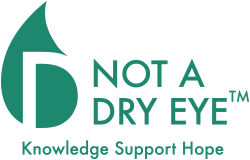Dr. Robert Wachter gets our vote.
At TEDMED 2015 he told the audience that professional intuition is under assault.
That’s how we feel when some doctors disparage meibomian gland probing, saying it’s too new or citing a lack of evidence as the reason why they’re against it, even while we’re sitting in front of them with our probed (and now  functioning) meibomian glands.
functioning) meibomian glands.
When they say it’s too new, we say yes, probing might be relatively new. But just because it’s new, doesn’t mean it doesn’t work. Because the way we see it, newness and effectiveness are not mutually exclusive. Besides, meibomian gland dysfunction (MGD) has been around a long time. There’s nothing new about that disease.
Common Sense, Intuition, and MGD
And, fundamentally, doesn’t it just make sense that if a meibomian gland is blocked (think periductal fibrosis – vascularized bands of tissue around the duct that constrict it) something (dare we say a probe?) would need to pierce through that blockage to open up the gland, the way a balloon angioplasty widens and clears obstructed and constricted veins or arteries? So to us, meibomian gland probing as a treatment is obvious, and intuitively makes sense.
And even if it is relatively new, that doesn’t mean there isn’t any evidence of its effectiveness. Its inventor, Dr. Steven Maskin, has plenty of evidence. Plus other independent studies have been conducted all over the world – Japan, Spain, China, Russia, New York State. A double-blind clinical trial was even completed at Harvard last year, but the results haven’t been published yet. (Let’s hope competing interests aren’t suppressing its publication – which, sadly, sometimes occurs in the medical field).
Because, although there’s a place for evidence-based medicine, there’s also a place for intellect, experience, wisdom, common sense, and intuition – elements of science and medicine at their best.
After all, once upon a time, nothing was “evidence-based.” Not even an aspirin.
Send your comments to blogger@notadryeye.org
Reference
Professional intuition is under assault, Wachter says
M. Frellick
Presented November 20, 2015
Medscape Medical News from TEDMED 2015.
November 24, 2015.
http://www.medscape.com/viewarticle/854925

